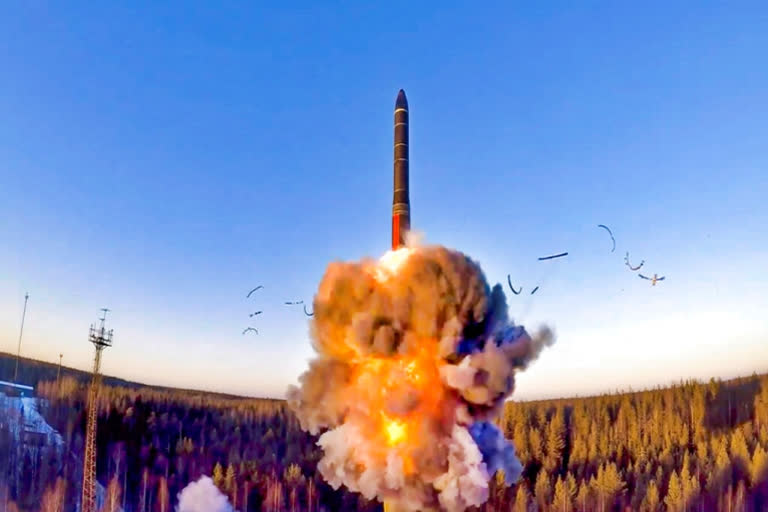New Delhi: Union minister Jitendra Singh assured the members of the Rajya Sabha on Thursday that there is better nuclear safety in India as compared to many countries and there are enough safeguards in the Indian nuclear plants. Responding to supplementaries during the Question Hour, Singh said standard operating procedures are in place to ensure that there is no emergency situation in the country's nuclear plants.
He also told the members that earlier, the nuclear plants were located only in southern states but now, these plants are coming up in northern states as well and a new one is coming up at Haryana's Gorakhpur. Responding to the concerns of the members as regards the measures in place to ensure the safety of the nuclear plants, the minister said, "The safeguards are so much in place that there is hardly any risk of any emergency."
"There is better nuclear safety as compared to many other countries," he added. Singh said the country has the National Disaster Management Plan (NDMP) in place and as far as nuclear emergency and nuclear safety are concerned, the plan functions in collaboration and in cognizance with the Department of Atomic Energy, which is the nodal department in such cases, and also with the Ministry of Health and the Ministry of Environment.
"There is an SOP in place. The emergency exercises are done once in every year at the site of the plant and then, once in two years outside the site as well as within the plant," he said, adding that an insurance pool in case of emergencies related to atomic energy is also there. The minister said even at the time of setting up a plant, all precautions are taken to ensure that there is no health hazard.
He also informed the members that on the western as well as on the eastern side of the country, there is no big population and "we are sufficiently placed at a distance where we don't have factors interfering and causing an emergency". Singh said mock preventive exercises are carried out regularly at the nuclear plants.
"We follow the principle of safety first and protection next. Never is the safety sacrificed at the alter of production.
Also read: UN chief warns humanity 'one miscalculation away from nuclear annihilation'
What I would like to stress is that on one hand, all the safeguards are there, and on the other, the production is also being strengthened. We have a mechanism in place whereby if a hazard happens, the automatic system is activated," he said. The minister also told the members that it is the government's responsibility to clear misconceptions and myths that nuclear plants lead to more diseases.
It has been established that those who work in nuclear plants are not subjected to a higher risk of radiation and there is not even a single case of radiation-related death in the vicinity of the nuclear plants, he said. In his written reply, the minister said the NDMP-2019, prepared by the National Disaster Management Authority (NDMA), establishes a framework for the management of all disasters, including Nuclear and Radiological Emergencies (NRE).
"The Atomic Energy Regulatory Board (AERB), the nuclear regulatory body in India, holds discussions with the nuclear regulatory bodies of other countries on matters
related to nuclear and radiation safety. India is a party to the 'Convention on Nuclear Safety' (CNS). The CNS carries out a review of all aspects of nuclear safety
of the countries with a nuclear programme every three years.
"During the CNS review, India's safety aspects with respect to the rest of the world are assessed and have been found to be satisfactory. The AERB has bilateral arrangements with the regulatory bodies of France, Russia, Ukraine, the US, Finland, Canada, Bangladesh, Great Britain and Vietnam for the exchange of technical information and cooperation in the regulation of nuclear safety and radiation protection," Singh said. (PTI)



